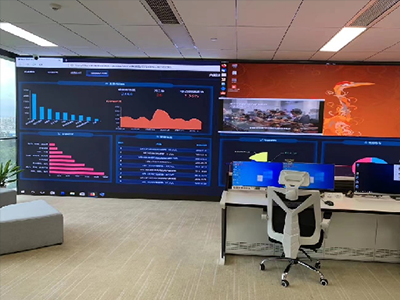ERP系统 & MES 生产管理系统
10万用户实施案例,ERP 系统实现微信、销售、库存、生产、财务、人资、办公等一体化管理
Optimizing Manufacturing Efficiency with MES Systems: A Comprehensive Guide
Manufacturing Execution Systems (MES) have revolutionized production management across industries, enhancing efficiency, traceability, and decision-making capabilities. This article delves into successful implementation strategies and key insights derived from notable cases.
The Foundation of MES Systems
MES systems serve as the ultimate bridge between planning and production, integrating real-time data to streamline operations. They facilitate resource allocation, scheduling, and quality management with unprecedented precision.
Key Benefits of MES Implementation
Implementing MES brings forth a plethora of advantages:
– Enhanced Productivity: Real-time monitoring optimizes workflow, minimizing downtime.
– Improved Quality Control: Automated data capture ensures adherence to quality standards.
– Inventory Optimization: Accurate demand forecasting reduces surplus and stockouts.
– Regulatory Compliance: MES provides documentation and traceability crucial for audits.
– Cost Efficiency: Resource allocation and energy usage are optimized, reducing operational costs.
– Decision Support: Data-driven insights empower managers to make informed decisions swiftly.
Successful Case Studies
The Automotive Industry: Driving Efficiency
In automotive manufacturing, MES systems have enabled just-in-time production and stringent quality controls, minimizing defects and maximizing output.
Pharmaceutical Sector: Ensuring Compliance and Safety
Pharmaceutical companies utilize MES to maintain regulatory compliance, ensuring batch integrity and product safety throughout the manufacturing process.
Consumer Goods: Agility in Production
For consumer goods, MES systems facilitate rapid reconfiguration of production lines, adapting quickly to market demands and seasonal variations.
Electronics Manufacturing: Precision and Traceability
In electronics, MES ensures component traceability from assembly to shipment, crucial for maintaining product reliability and customer satisfaction.
Food and Beverage: Enhancing Quality and Shelf Life
In the food industry, MES monitors processes to uphold quality standards and traceability, extending shelf life and ensuring safety compliance.
Heavy Industry: Optimizing Resource Utilization
Heavy industries leverage MES to optimize resource allocation, monitor equipment health, and improve overall operational efficiency.
Challenges and Considerations
While MES systems offer substantial benefits, implementation requires meticulous planning and consideration of several factors:
– Integration Complexity: Seamless integration with existing ERP and other systems.
– Change Management: Overcoming resistance and ensuring user adoption.
– Data Security: Protecting sensitive operational data from cyber threats.
– Scalability: Ensuring the system can accommodate future growth and technological advancements.
Conclusion: Harnessing the Power of MES
MES systems represent the ultimate tool for modern manufacturing enterprises aiming to achieve unparalleled efficiency, quality, and compliance. By leveraging real-time data and automation, businesses can navigate complexities, meet consumer demands, and stay ahead in a competitive global market.
Through successful implementation and strategic utilization, MES not only transforms production processes but also lays the groundwork for continuous improvement and innovation in manufacturing.
This guide serves as a roadmap for enterprises embarking on the journey towards MES integration, ensuring sustainable growth and operational excellence in the digital era.












